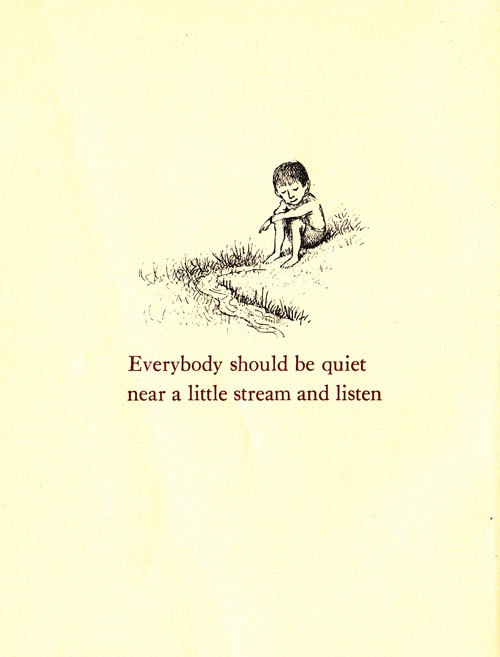Against Busyness and Surfaces: Emerson on Living with Presence and Authenticity
INSPIRATIONAL, 15 Jul 2019
Maria Popova | Brain Pickings – TRANSCEND Media Service
On cultivating “the power to swell the moment from the resources of our own heart until it supersedes sun & moon & solar system in its expanding immensity.”
“After you have exhausted what there is in business, politics, conviviality, love, and so on — have found that none of these finally satisfy, or permanently wear — what remains?”
Walt Whitman asked in his diary as he contemplated what makes life worth living after a paralytic stroke, then answered:
“Nature remains; to bring out from their torpid recesses, the affinities of a man or woman with the open air, the trees, fields, the changes of seasons — the sun by day and the stars of heaven by night.”
A generation earlier, Ralph Waldo Emerson (May 25, 1803–April 27, 1882) — Whitman’s great hero, whose extraordinary letter of encouragement made the young poet’s career — tussled with the same question in his own journal. In an entry from his Selected Journals: 1841–1877 (public library), the thirty-eight-year-old Emerson laments how a preoccupation with society’s charades removes us from the deepest source of creaturely fulfillment:
That Spirit which alone suffices to quiet hearts & which seems to come forth to such from every dry knoll of sere grass, from every pine stump & half-embedded stone on which the dull March sun shines will come forth only to the poor & hungry & such as are of simple taste. If thou fillest thy brain with Boston & New York, with fashion & covetousness, and wilt stimulate thy jaded senses with wine & French coffee thou shalt find no radiance of Wisdom in the lonely waste by the pinewoods.
Two millennia after Seneca admonished against how living with haste and expectancy constricts our lives and more than half a century before Hermann Hesse made his case for the most important habit in living with presence, Emerson writes:
Life goes headlong. Each of us is always to be found hurrying headlong in the chase of some fact, hunted by some fear or command behind us. Suddenly we meet a friend. We pause. Our hurry & embarrassment look ridiculous. Now pause, now possession is required, and the power to swell the moment from the resources of our own heart until it supersedes sun & moon & solar system in its expanding immensity. The moment is all, in all noble relations.
Mere months later, across the Atlantic, Kierkegaard would bemoan the absurdity of busyness, writing in his own notebook: “Of all ridiculous things the most ridiculous seems to me, to be busy — to be a man who is brisk about his food and his work.”
With a wistful eye to how our flight away from nature and toward the bustling superficialities of society has dislocated us from the most rewarding kind of presence, Emerson writes:
In New York lately, as in cities generally, one seems to lose all substance, & become surface in a world of surfaces. Everything is external, and I remember my hat & coat, and all my other surfaces, & nothing else. If suddenly a reasonable question is addressed to me, what refreshment & relief! I visited twice & parted with a most polite lady without giving her reason to believe that she had met any other in me than a worshipper of surfaces, like all Broadway. It stings me yet.
This notion of surfaces would preoccupy Emerson for the remainder of his life, but he would mature into the recognition that while it may not be possible for a person living in society to eradicate these superficialities entirely, it is possible to navigate them with grace while maintaining a deeper, more authentic interior life. In his essay on how to live with maximum aliveness, he would write:
We live amid surfaces, and the true art of life is to skate well on them.
Complement Emerson’s immensely insightful Selected Journals with his wisdom on preserving your individual integrity in a mass society, the building blocks of genius, the key to personal growth, the two pillars of friendship, and what beauty really means, then revisit Hesse on breaking the trance of busyness and Annie Dillard on choosing presence over productivity.
_______________________________________
 Brain Pickings is the brain child of Maria Popova, an interestingness hunter-gatherer and curious mind at large obsessed with combinatorial creativity who also writes for Wired UK and The Atlantic, among others, and is an MIT Futures of Entertainment Fellow. She has gotten occasional help from a handful of guest contributors. Email: brainpicker@brainpickings.org
Brain Pickings is the brain child of Maria Popova, an interestingness hunter-gatherer and curious mind at large obsessed with combinatorial creativity who also writes for Wired UK and The Atlantic, among others, and is an MIT Futures of Entertainment Fellow. She has gotten occasional help from a handful of guest contributors. Email: brainpicker@brainpickings.org
Go to Original – brainpickings.org
Tags: Inspirational, Literature
DISCLAIMER: The statements, views and opinions expressed in pieces republished here are solely those of the authors and do not necessarily represent those of TMS. In accordance with title 17 U.S.C. section 107, this material is distributed without profit to those who have expressed a prior interest in receiving the included information for research and educational purposes. TMS has no affiliation whatsoever with the originator of this article nor is TMS endorsed or sponsored by the originator. “GO TO ORIGINAL” links are provided as a convenience to our readers and allow for verification of authenticity. However, as originating pages are often updated by their originating host sites, the versions posted may not match the versions our readers view when clicking the “GO TO ORIGINAL” links. This site contains copyrighted material the use of which has not always been specifically authorized by the copyright owner. We are making such material available in our efforts to advance understanding of environmental, political, human rights, economic, democracy, scientific, and social justice issues, etc. We believe this constitutes a ‘fair use’ of any such copyrighted material as provided for in section 107 of the US Copyright Law. In accordance with Title 17 U.S.C. Section 107, the material on this site is distributed without profit to those who have expressed a prior interest in receiving the included information for research and educational purposes. For more information go to: http://www.law.cornell.edu/uscode/17/107.shtml. If you wish to use copyrighted material from this site for purposes of your own that go beyond ‘fair use’, you must obtain permission from the copyright owner.


Thank you, Maria…. In the hurly-burly, hub-bubbing world we inhabit now, there’s barely time to consider, rarely even time to mention,to pay tribute to great thinkers, “great souls” like those of America’s first transcendentalist movement–Emerson, Thoreau, Whitman, the Alcotts, et. al.–and you remind us, and pay homage, not only to them, but to similar spirits like Seneca, Kierkegaard, and Hesse. And, as we search for peace–within ourselves and within our world–how crucial it is to remember and celebrate the great thinkers, philosophers and artists who nurtured and helped to salvage the best within us.